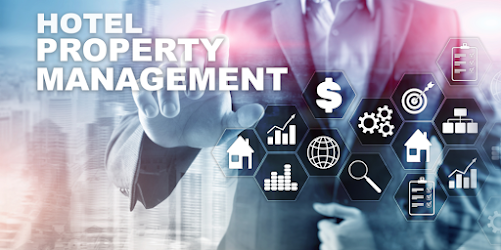How to Calculate Hotel Guest Acquisition Cost (GAC) with Property Management Systems
Introduction
In the competitive hospitality industry, acquiring new guests is a constant challenge for hotels. To maximize revenue and profitability, hoteliers need to understand the cost associated with attracting and retaining guests. One crucial metric for evaluating these costs is the Guest Acquisition Cost (GAC). This blog will delve into GAC and how to calculate it, focusing on the role of Property Management Systems (PMS) in the process.
What is Guest Acquisition Cost (GAC)?
Guest Acquisition Cost (GAC) is crucial performance
indicator hotels use to measure the total expenses incurred in acquiring a new
guest or customer. This metric encompasses all costs related to marketing,
advertising, distribution, and sales efforts aimed at attracting and converting
potential guests into paying customers. Calculating GAC is essential to
understanding the efficiency and effectiveness of your hotel's acquisition
strategies.
Why is GAC Important?
GAC is an essential metric for hoteliers for
several reasons:
- Cost
Efficiency: Knowing the cost of acquiring a guest allows you to allocate
your marketing budget more efficiently. It helps you identify which
acquisition channels are the most cost-effective and which need
optimization.
- Profitability:
By understanding GAC, hotels can set appropriate room rates and optimize
their marketing strategies to ensure that the revenue generated from each
guest acquisition is higher than the associated costs.
- Strategic
Decision-Making: GAC data enables informed decision-making and resource
allocation. It helps in setting realistic and attainable acquisition
targets.
Calculating GAC
Calculating GAC can be a complex process, as it
involves tracking various expenses across different channels and time frames.
However, having a robust Property Management System (PMS) can streamline the
process. Here's a simplified formula for calculating GAC:
GAC = Total Acquisition Costs / Number of New
Guests
- Total
Acquisition Costs: This includes all the expenses for acquiring new
guests. It includes marketing expenses, advertising costs, travel agency
commissions, OTA (Online Travel Agency) fees, loyalty program incentives,
and sales team salaries.
- Number
of New Guests: This refers to the total number of guests who have stayed
at your hotel due to your acquisition efforts during a specific period,
such as a month or a year.
Role of Property Management Systems (PMS)
Property Management Systems are the central nervous
system of any hotel. They not only help streamline daily operations but also
play a crucial role in calculating GAC. Here's how a PMS can assist in this
process:
- Data
Collection: PMS systems gather extensive data on guest stays,
reservations, and revenue. This data is invaluable when calculating GAC,
as it provides accurate and detailed information on the number of new
guests and associated costs.
- Integration:
Cloud PMS can integrate with
various other systems and platforms, such as your hotel's website, OTAs,
and CRM systems. This integration ensures that all data related to guest
acquisition is automatically collected and can be readily accessed.
- Reporting:
Most modern PMS systems offer robust reporting and analytics features. You
can generate reports that break down acquisition costs by channel, helping
you identify which marketing channels are the most cost-effective.
- Forecasting:
A PMS can also assist in forecasting demand and occupancy rates, allowing
you to plan your acquisition strategies more effectively.
Calculating Guest Acquisition Cost (GAC) is a fundamental practice for any hotel that wants to thrive in a competitive market. With a reliable Property Management System, you can streamline the process and make more informed decisions about your marketing and sales efforts. By understanding your GAC, you can allocate your budget more efficiently, optimize your acquisition strategies, and ultimately drive profitability for your hotel.
.png)

.png)

Comments
Post a Comment